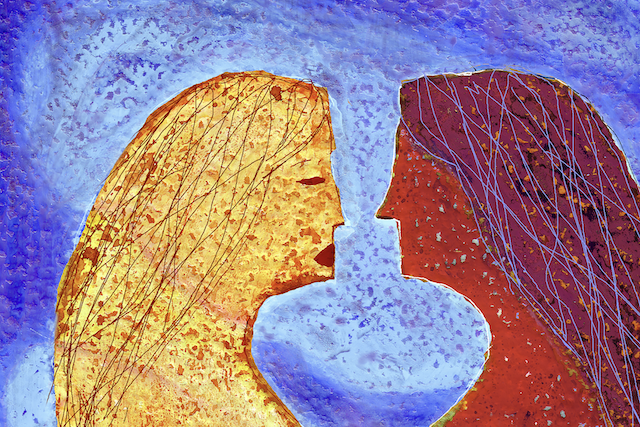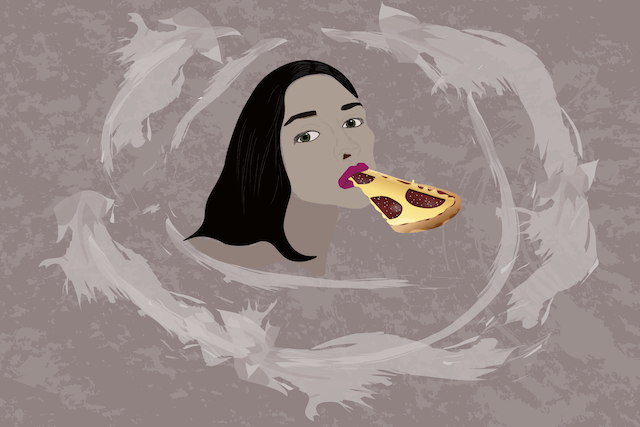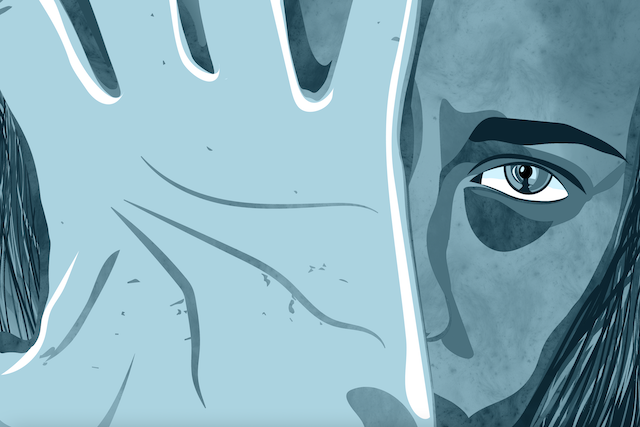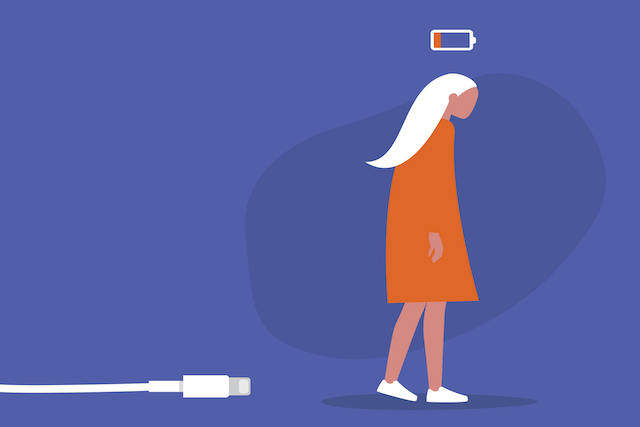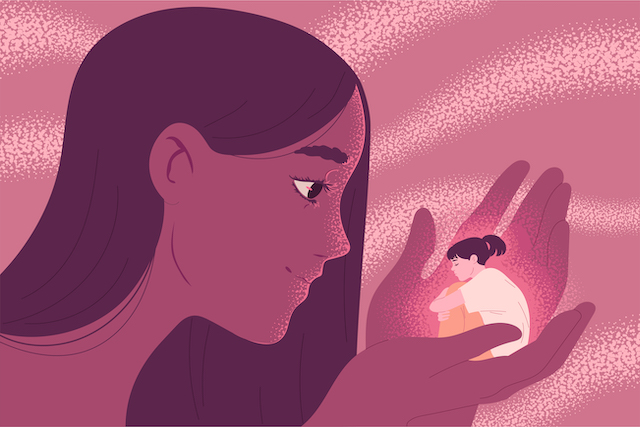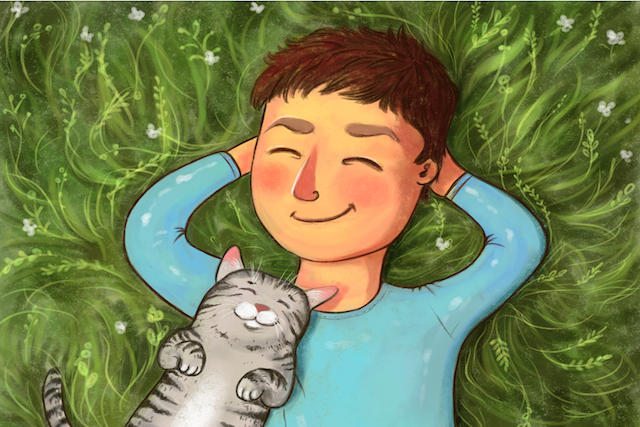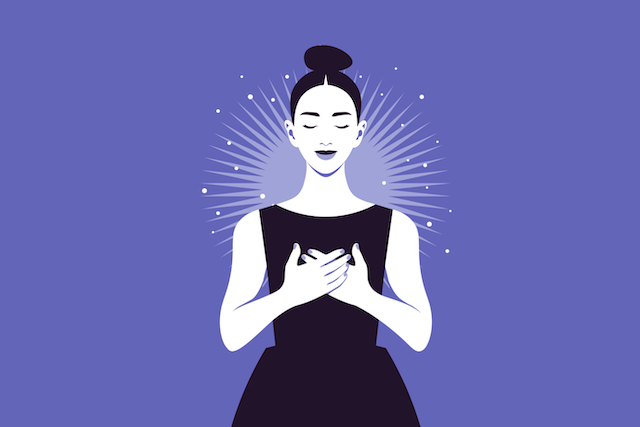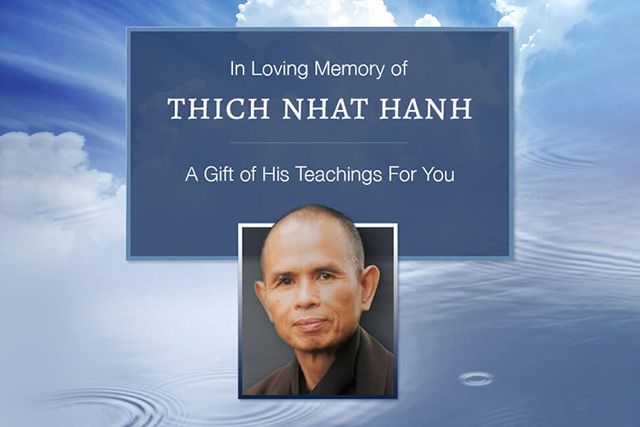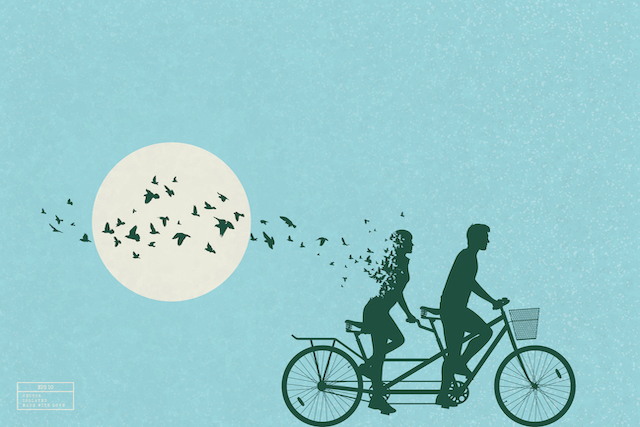
“At the end of life, at the end of YOUR life, what essence emerges? What have you filled the world with? In remembering you, what words will others choose?” ~Amy Rosenthal
Most people believe sorting through a loved one’s belongings after death provides closure. For me, it provided an existential crisis.
After glancing at the angry sky in my father’s driveway for what seemed like hours, I mustered up the courage to crack open the door to the kitchen. The eerie silence stopped me in my tracks. Wasn’t he cooking up a storm in this cluttered kitchen just a few days ago?
I started with the mounds of clothes and cuddled them gently before pitching them. The sweet aroma of his fiery cologne still lingered. The air smelled just like him.
My father’s belongings served as physical reminders of how he spent his time on Earth. Some of my favorites included:
A weathered yellow newspaper clipping of his parents. Cherished family photos, with him grinning ear to ear. A collection of homemade cookbooks. Framed quotes such as Mi casa es su casa. A prestigious Pottery Barn leather chair, distressed by puppy claw marks. Nostalgic t-shirts from the early 90’s.
Chipped and heavily-used Williams-Sonoma platters. An entertainment center that mimicked a NASA operation center, with 70’s CDs left in the queue. Invitations to neighborhood block parties. An embroidered apron which read “World’s Best Grill Master” paired with still fresh barbeque sauce stains.
Homemade recipe cards with quirky quotes like “It’s good because it’s cooked on wood.” An entire closet of camping gear. Leftover birthday celebration goodies. Glazed pottery from local North Carolinian artists. Entertaining sports memorabilia on full display. And a tender card from me:
Dear Dad,
You’re the best dad ever! I hope you have a birthday filled with tasty BBQ, blaring seventies music, and a pepperoncini pepper to start the day off right. Thank you for being there for me. You are my hero. I can’t wait to celebrate with you this weekend!
My father collected items that brought him joy, and, clearly shared them with others.
While you may not know him, or think you have anything to do with him, you do.
You will be him one day. We will all be him one day. At some point, someone will rummage through our drawers. Scary, isn’t it?
Weeks later after organizing his possessions, I returned to my lavish apartment with cloudy judgment. As soon as I arrived, I dropped my luggage near the door and waltzed into my closet. The items that once made me proud, made me nauseous. If someone rummaged through my keepsakes, they would find:
A closet full of color-coordinated designer brand clothes. Scratched CDs listing my favorite nineties bands. An entire drawer filled with vibrant, unused makeup. A high-end collection of David Yurman rings, necklaces, and bracelets. Wrinkled Nordstrom receipts. An assortment of gently used designer handbags. And, pictures of fair-weather friends scattered throughout.
Do you know what they all had in common? Me.
ME! ME! ME!
Comparing my life to my father’s led to a life-changing decision. Should I continue to splurge on meaningless items or start completely over?
After a moment of contemplation, my life mirrored a blank slate. Products related to “keeping up with the Jones’s” were no longer my jam. Instead, my money was reserved for incredible moments that produced long-term joy and warm memories.
My new spending habits derived from the following financial values:
- Seek experiences that make me feel alive.
- Purchase life-changing products.
- Invest in creative hobbies that I’m proud of.
- Provide others with joyous moments.
- Initiate celebratory activities.
- Make financial decisions out of love.
With a little trial and error, I traded in frivolous shoulder bags for top-rated camping gear. Saturday shopping days transformed into baking Sundays. And most importantly, I went from feeling not enough to experiencing fulfillment.
Twelve years later, I’m happy to share that I continue to evaluate my purchases using a “Will this make a good memory?” lens. In retrospect, mending my financial habits was one of the best decisions I’ve ever made.
Why? I’m no longer impressed by status. I prefer art, learning, and the outdoors over any invitation to shopping. In return, my life is filled with purpose, meaning, and long-term satisfaction.
What I know for sure is that most commodities on their own overpromise and underdeliver, unless we intentionally create an evocative memory with them. Materialistic purchases provide us with fleeting moments of happiness. On the contrary, curating beautiful moments with others delivers long-term joy.
While you won’t find many luxurious products in my house now, you will find:
A four-person picnic backpack for sunny days at a park. Bird feeders galore. A fine assortment of tea to share with others. Homemade bath bombs for birthdays. Color-coordinated self-improvement books. Aromatic sea salt exfoliants that replicate a spa experience. Cheery holiday decorations.
An assortment of various vision boards and bucket lists. Seasonal candles galore. A bathroom drawer filled with citrus soaps, shampoo, and lotions for overnight guests. A collection of homemade scrapbooks featuring beloveds.
An emerald green trekking hiking backpack for outdoorsy adventures. Crinkled Aquarium tickets. Handwritten family cookbooks. Seeds for a blooming garden. Hygge and cozy themed library nooks. A bright blue hybrid bike, for nomadic quests. A closet full of board games. And my most prized possession of all, a sentimental card from my darling father, John:
Happy Graduation, Britti!
I am proud of who you are and proud to be your dad. I like how you hold your head high. You are becoming a beautiful young woman and fun to be around. You have taught me things. You are so important to me. I treasure our time together and will always be here for you! It’s not always easy, but, you have a lot of love around you. I hope that life keeps blessing you. Keep spreading your wings and following your dreams!
Love, Dad
The real question is, when someone organizes your belongings, what will they find?
![]()
About Brittany Powell
Brittany Powell is the founder of Positivity Pledge, an online community where people build meaningful lives. Brittany’s work has appeared in various publications, including Voyage Phoenix and Shoutout Arizona. To build your own meaningful life, visit Positivity Pledge and follow her daily meaningful activities on Insta.
Get in the conversation! Click here to leave a comment on the site.
The post Living a Meaningful Life: What Will Your Loved Ones Find When You Die? appeared first on Tiny Buddha.
from Tiny Buddha https://ift.tt/ro1Z9NS

